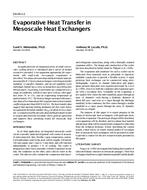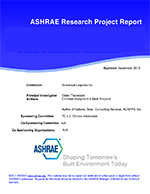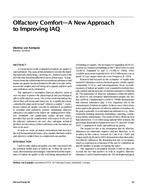Air cooled chillers are becoming a primary choice for heat rejection in the regions of short supply of water. The performance of the air cooled condensers/chillers can degrade under high ambient temperature and windy conditions. Several factors including the wind speed, wind direction, spacing between the chillers, and distance from the adjacent building can affect the performance of air cooled chillers. This study with the help of Computational Fluid Dynamics (CFD) analyses evaluates the impact of these parameters on the airflow patterns, dispersion of the hot exhaust plumes from the chillers, and on the air temperature distribution at chiller air intakes. The extent of hot exhaust plume recirculation into the chillers intakes is estimated in terms of the average intake air temperature. These analyses indicate increasing wind speeds increase re-circulation of exhaust plumes into the chiller air intakes. Orienting the chillers perpendicular to the prevailing wind direction can promote the cascading effect of the hot plume re-circulation. The spacing between the chillers has larger impact on the re-circulation of hot exhaust plumes than the distance between the building and the chillers. Reducing the spacing between the chillers can significantly increase the re-circulation of hot exhaust plumes and resulting intake air temperature. This study further indicates that placing the chillers too close to the building can promote re-circulation of hot plumes back into the chiller air intakes. However moving the chillers beyond certain distance from the adjacent building would not yield any significant reduction in the intake air temperatures.
Product Details
- Published:
- 2015
- Number of Pages:
- 8
- Units of Measure:
- Dual
- File Size:
- 1 file , 1.9 MB
- Product Code(s):
- D-AT-15-C053
- Note:
- This product is unavailable in Russia, Belarus


